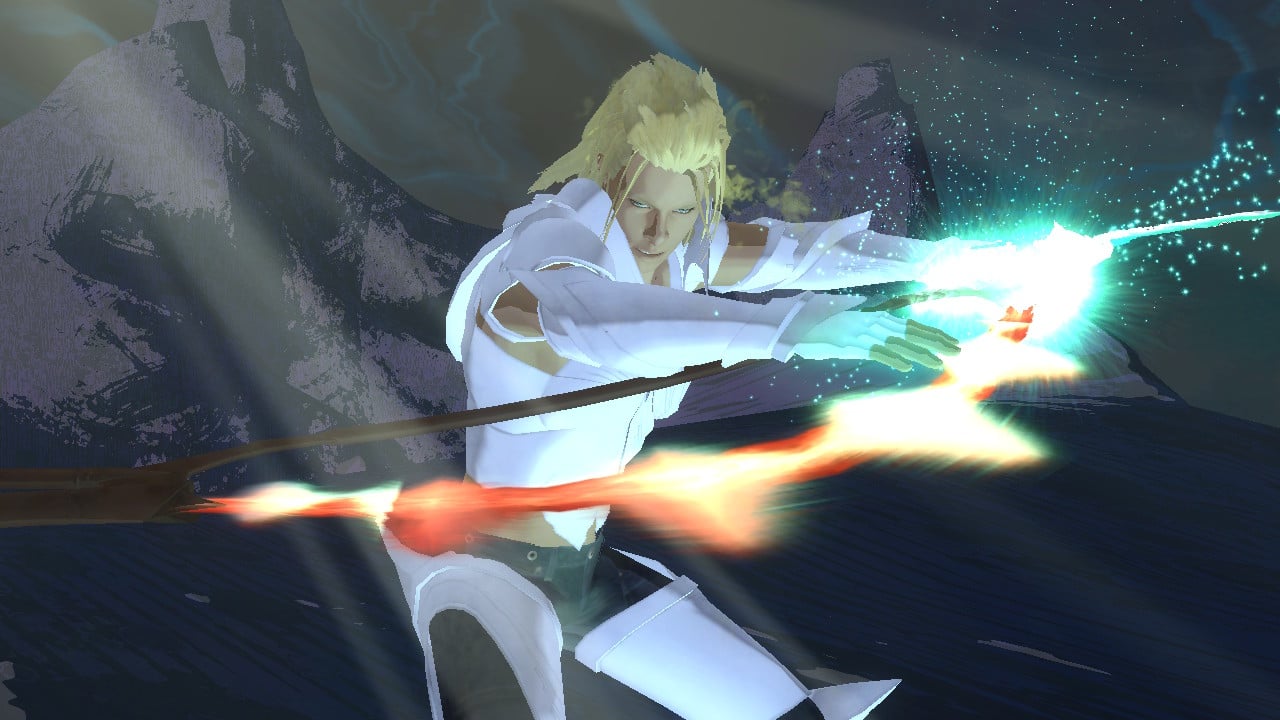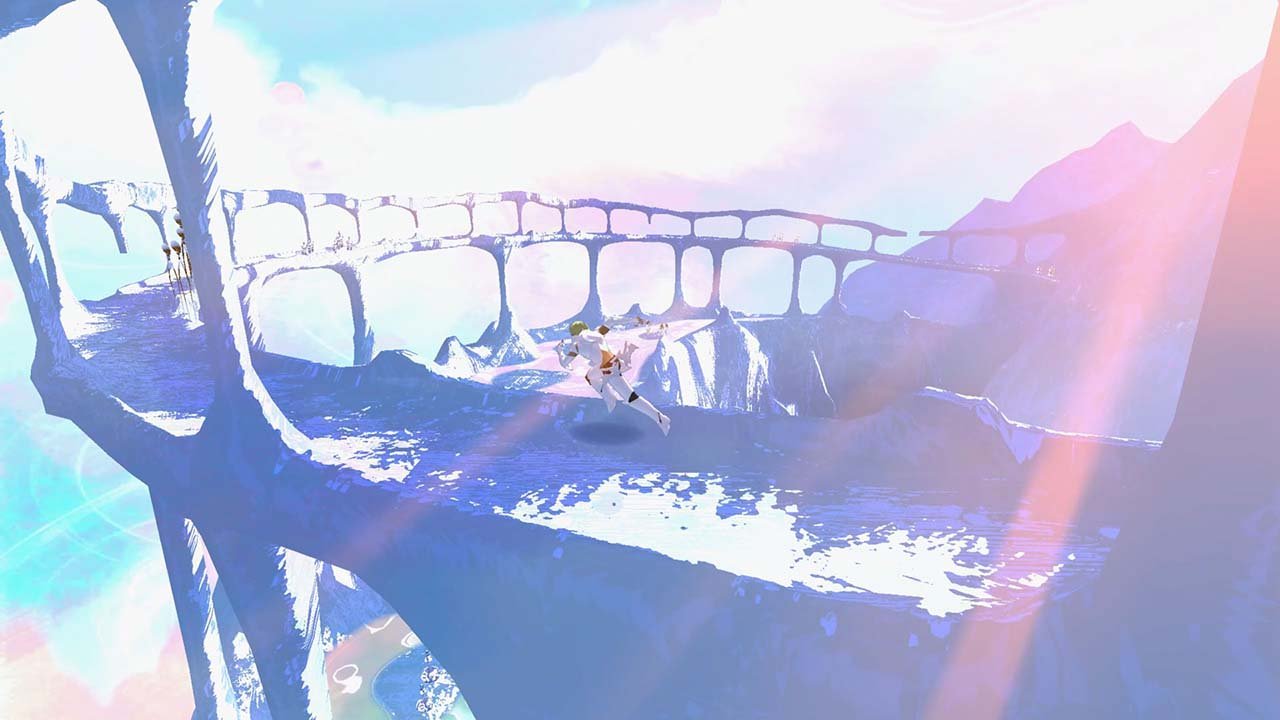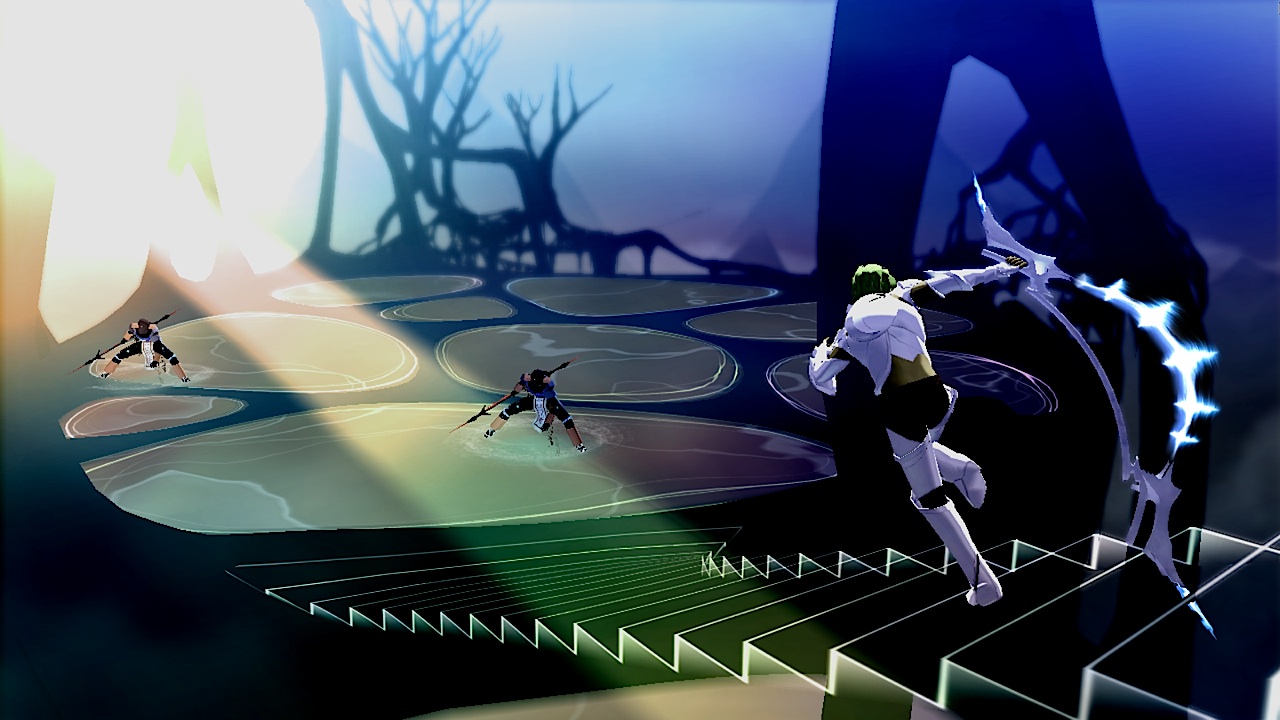El Shaddai: Ascension of the Metatronwith its artistic elegance and thematic depth, is without a doubt one of the most peculiar and divisive titles in the entire gaming panorama. Originally released way back in 2011 for PlayStation 3 and Xbox 360, this one-of-a-kind work now returns to Nintendo Switch with a remastered which sets itself the task of discovering (or rediscovering) one of the most underrated titles of the seventh console generation.
Set in a world steeped in mythology and spirituality, El Shaddai: Ascension of the Metatron challenges players on an epic journey through the eternal struggle between good and evil. But will this new version have been able to do justice to the title originally developed by Ignition Tokyo?
What is El Shaddai: Ascension of the Metatron?
As mentioned at the beginning of the article, El Shaddai: Ascension of the Metatron is undoubtedly one of the most controversial titles ever released in the console generation week. Between those who define it as a masterpiece and those who define it as a mediocre title, El Shaddai has in any case gone rather unnoticed, and many players have never had the opportunity to try the work with their own hands. After the conversion released on Steam in 2021, the title is once again making headlines with this remastering for Nintendo Switch, which will allow a new segment of users to try this controversial work for the first time.
Based on the apocrypha Book of Enochplayers take on the role of the celestial scribe Enoch, whose task is to locate and defeat seven fallen angels before the Council of Heaven unleashes a great flood on humanity. Although the premise is rather simple, the way in which the plot is told makes the experience one of a kind. Both for better and for worse, given that in some situations really complex to understand fully what is happening.
This largely comes from the complete creative freedom of Sawaki Takeyasuwho had previously worked on masterpieces of the caliber of Okami And Devil May Cry. The narrative is fragmented, and the actual nature of the events narrated, or when they take place, is not always clear. This peculiar narrative style, aided by aexcellent visual and sound componentmakes the title unique, an element which however could lead some of the less patient players to abandon the work prematurely.

A war for salvation
Speaking of the actual title, the gameplay of El Shaddai: Ascension of the Metatron (which alternates phases in three dimensions to other a lateral scrolling) And an intense mix of Hack n' Slash and platforming, which is based on a combat system that is simple to learn but somewhat difficult to master, especially in the more advanced stages. The gameplay, going to the core of its play structure, is based on few buttonsincluding attack, jump and guard, but despite this there is an incredible depth behind this apparent simplicity, given that the various buttons can be combined in different ways, which will change the actions during the fight. The main mechanic is Enoch's ability to steal your opponent's weapons (three in the entire game), which leads to greater variety and frenzy during enemy battles.
Beyond that, each weapon has some sort of “durability“. When we attack and defeat the enemies, the weapon used by Enoch will absorb negative aura, corrupting little by little. The moment Enoch's weapon is completely corrupted, it will deal less damage and will need to be purified, which can leave players vulnerable to enemy attacks. Additionally, players are also given the ability to immediately return to life when defeated in combat. By pressing a specific sequence of buttons it is in fact possible to resurrect Enochalbeit with reduced health.
One of the most interesting aspects of the visual design of El Shaddai: Ascension of the Metatronin relation to gameplay, is the total lack of HUD elements. Basically, all the information the player needs is present on Enoch and in the environment surrounding.


As for health points, they they will be represented by the state of Enoch's armor, which will shatter with any damage until the protagonist remains totally exposed and vulnerable. Although the combat is in all respects the highlight of the experience, it is the visual design created by Takeyasu to be the master, often stealing the show thanks to its incredible variety. One moment Enoch is crossing breathtaking landscapes that seem animated by living watercolours, the next the protagonist is venturing into a mysterious tower made up of gigantic eyes with alien features.
L'art design is undeniably the most successful aspect of the game, a continuous succession of scenarios that are totally different from what we have seen previously but, in a certain sense, still coherent with each other thanks to the sense of timelessness that the title instills. Everything is accompanied by a wonderful soundtrack, which adapts perfectly to every scenario that our protagonist will explore along the course of the adventure (whose longevity is around eight hours in total).
But so… how is this remastered?
For those who have already played the title and are reading this review to understand if Crim And Aqualead (the teams behind this conversion) did a good job with this remastered, that's where we find it some small sore notes. First, this remaster allows players to choose between High resolution mode and the Action mode. The former keeps graphics sharp at all times, even when playing in portable mode, while with the latter some pixels are sacrificed for the sake of Constant 60 fps.


If Action Mode is great, with 60 FPS remaining constant even in the most frenetic sentences, the same cannot be said about High Resolution Mode. In the latter case, in fact, the frame rate is quite unstable and, in some circumstances, it even touches 20 fps. Given that, all things considered, the difference in resolution between the two modes is minimal and almost imperceptible (especially if you play the title in portable mode) recommended live the experience by immediately activating Action Mode.
The combat, while immensely satisfying, can sometimes be difficult to master. A certain degree of patience is required of the player and, probably, thereThe work would have benefited from some simple updatesspecifically the addition of a mode target-lock on enemies, however totally absent. The same goes for the platform sections, which can be a little artificial, leading to some unnecessary pitfalls. Furthermore, a particularly bizarre error is related to the digital manual: inside the pause menu there is a QR code that will take players to the aforementioned digital manualwhich however it is only available in Japanese.
Remember, however, that this is a remastered, not a remake, and this type of operation does not make structural changes to the gameplay but simply “polishes” a title to make it more usable today. Despite a High Resolution Mode, at the end of the day, somewhat superfluousthis remastered does its job excellently, that is, that of bring back a forgotten title which must be rediscovered and reevaluated. An incredible experience, perhaps hermetic in some of its narrative and stylistic choices, but precisely for this reason to be experienced and experienced first-hand. Furthermore, it is available at the modest price of 19.99 Eurosa further reason for deciding to join Enoch in his incredible (and at times incomprehensible, it's true) adventure.
#Shaddai #Ascension #Metatron #Review #remastered #Nintendo #Switch
